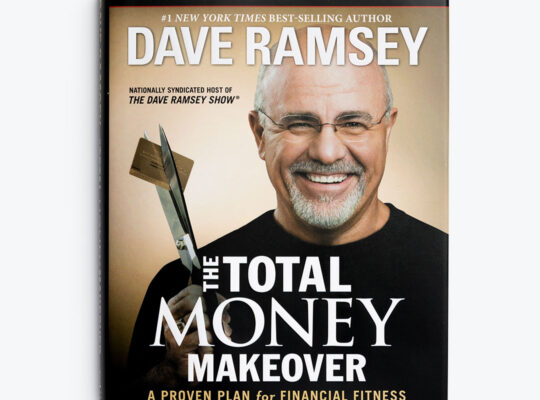
The book ‘The Millionaire Next Door’, based on actual interviews, demonstrates that many millionaires’ daily lives are far from the caricature of luxury automobiles, homes, and private aircraft. Even so, this book debunks the myth that achieving the status of millionaire is tough. According to the author, everyone may learn not only how to become wealthy but also how to maintain their wealth.
Authors of this book are Thomas J. Stanley and William D. Danko.
‘Millionaire Women Next Door’, ‘Marketing to the Affluent,’ and ‘Selling to the Affluent’ are among Thomas’ award-winning works about the rich. William is a marketing professor at the State University of New York at Albany’s School of Business.
What this book says?
We are all mistaken about how wealthy live. Millionaires, we suppose, are ostentatious. They have private aircraft and fancy cars, and they reside in gigantic villa mansions. Yet the fact is that most millionaires lead what most people would consider a regular existence. The remarkable thing is that they became millionaires by living simply in the first place.
According to the book’s author, if you’re committed and astute enough to organize your finances well, you may follow the route to riches taken by many millionaires before.
Millionaires budget wisely to maintain their wealth:
Many real millionaires spend less money than we do on pricey stuff. Most notably, they like it while doing it. If you want to become a millionaire, you must develop good saving habits when you first start to make more money than you require for subsistence.

The bulk of self-made millionaires come from humble beginning and built their fortunes by setting aside a portion of their monthly income and refraining from buying things they didn’t really need. Without ever earning a million dollars a year, you might become a millionaire by following this basic principle.
Individuals that manage their finances well and keep their riches become millionaires. They are skilled in long-term thinking and future planning.
If you intend on becoming a millionaire, planning and organizing your expenditures is essential. Start by establishing a goal, such as saving a particular sum of money for retirement. Then, create a budget for your spending, living expenses, and investments.
Millionaires believe financial independence is important than showy status:
Many millionaires in the real world are more focused on achieving financial security than they are on amassing a collection of luxury cars. A key component of wellbeing is financial freedom. Those who are financially independent are satisfied compared to those without it among those in the same salary category.
So what does it imply to be self-sufficient financially? Financial independence is being able to maintain your current standard of living after retirement and surviving a potential financial emergency.
Those who are in good financial standing are aware of their long-term objectives, which make it possible for them to set up household finances in accordance with their goals.

The author employs a mathematical formula to determine a person’s predicted wealth, which is: the person’s age times the pre-tax yearly family income, divided by 10.
Let’s say someone made $221,000 in a year. His predicted wealth, given his age of 48, would be equivalent to 48 times 221,000, divided by 10, which is $1,060,800. This person should have a net worth of $1.06 million according to this thumb rule formula.
The author claims that if his net worth is less than this amount, he is not a millionaire.
Millionaires know where to invest their money:
Smart millionaires are frequently conservative in many areas, but when it comes to paying for investment services, tax guidance, or personal and family medical care, cost is not a concern for them.
For instance, a millionaire the author spoke with claimed that he would never purchase a luxury car for himself because it would attract too much attention in his lower-middle class community. He realises that it makes far more economic sense to use his funds to cover his grandchildren’s dental treatment rather than a luxury car.
Good planning entails wise spending. Millionaires devote more time in arranging their investments and frequently gain more from them than others who don’t even plan in the first place.

Also, you’ll need to prepare and acquire knowledge if you want to expand your money by investing in particular firms. Every person has at least one subject they are particularly knowledgeable about, so while investing, make use of this knowledge.
Millionaires share their wealth with their children:
We have seen the lifestyles of millionaires, but what about their children? Millionaire parents typically do provide their children with much financial help when raising them.
Despite the fact that many millionaires are frugal, they spend a lot on affordable specialty care. This entails that their children get recurring financial contributions, have the expense of their schooling and medical care paid for, and so forth.
Yet, the more money adult children of rich parents get, the less they save, and vice versa.

46% of the wealthiest individuals assist their adult children with annual gifts and financial benefits each year. Some millionaires make their adult children financially reliant on them, which prevents them from making wise financial decisions.
Your children’s spending habits are influenced by how much money you spend and save. Every family has its own dos and don’ts for saving and spending, and these budgets have an impact on kids who imitate their parents’ spending and saving behaviours.
Children often attempt to imitate their parents. Thus, show your kids how to manage their money and how to invest efficiently.
Financially dependent children receive the largest share of the family inheritance:
Many wealthy assert that their children will receive an equal share of their riches. In actuality, though, some people have a higher chance of inheriting than others.
One such group includes housewives. Millionaires or affluent parents know that women often earn less than males, therefore they give them more money. Particularly housewives who could have grown up as “daddy’s little princess” or who didn’t complete college. They have a far higher likelihood of inheriting a sizable sum.

Women who stay at home sometimes get more monetary gifts and inheritance than employed siblings, in addition to adult children who are unemployed.
The children of millionaires frequently lack employment or are lifelong students who call themselves “professional students” and have never worked. Compared to their more independent siblings, parents believe that these kids need more financial assistance.
Conclusion:
The normal millionaire is not all flash and show. Many of them budget their finances well, save money conscientiously, and stay well below their bounds. You too might become a millionaire if you continuously follow the basic principles described in this book. The author also discusses the common mistakes millionaires make when it comes to raising their kids, which when fixed may help their children in becoming millionaires as well.





